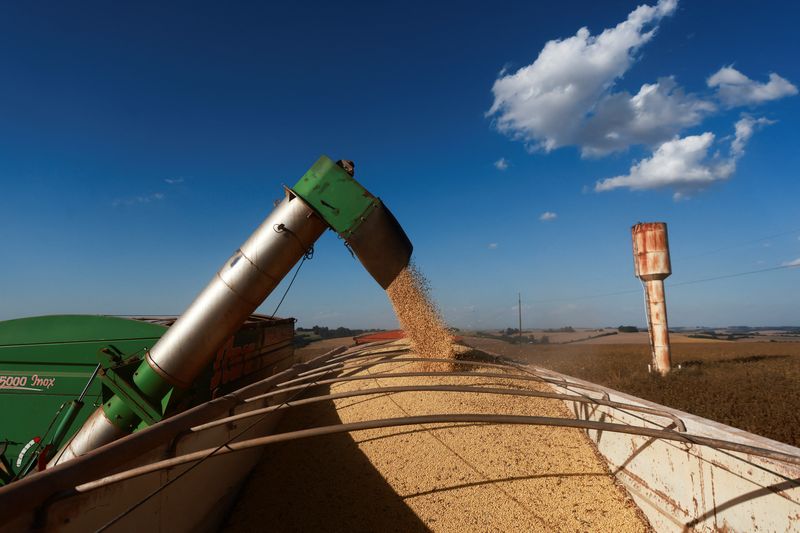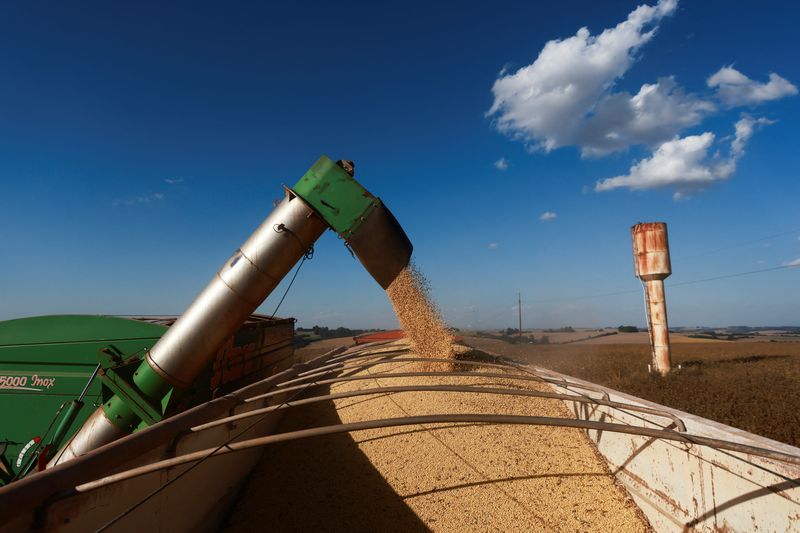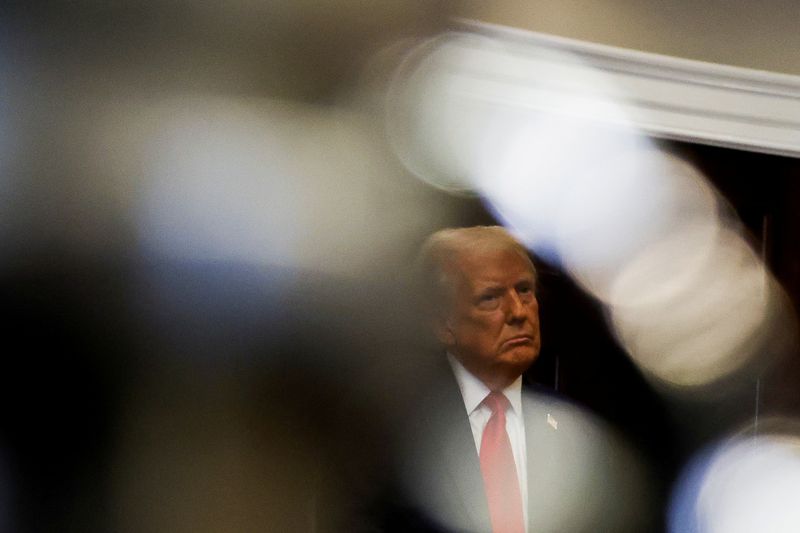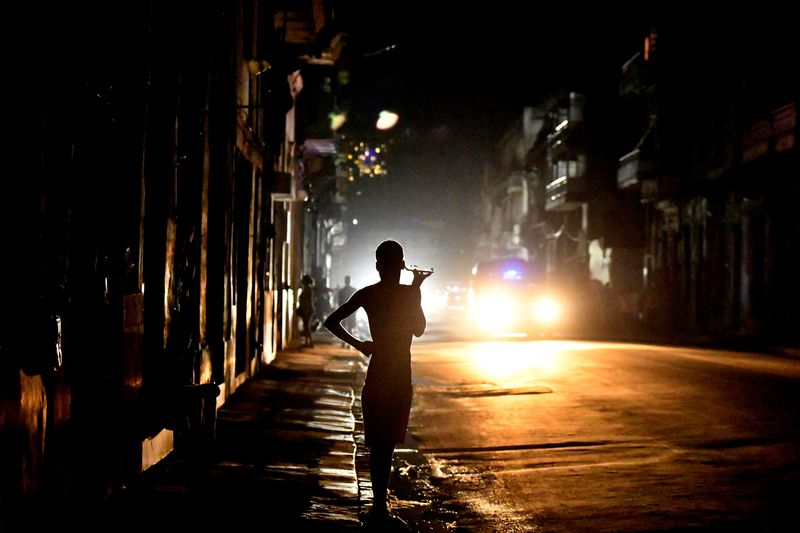
By Dave Sherwood
HAVANA (Reuters) – Cuba’s government said on Saturday it had made some progress in gradually re-establishing electrical service across the island, including to hospitals and parts of the capital Havana, after state-run media earlier reported the national grid had collapsed for a second time in 24 hours.
Most of Cuba’s 10 million people, however, remained without electricity on Saturday afternoon.
Traffic lights were dark at intersections throughout Havana, and most commerce was halted. Long lines formed at state-subsidized shops where Cubans purchase bread and other staples.
The country’s top electricity official, Lazaro Guerra, said grid operator UNE was working to raise enough capacity in the system to start several power plants and restore electricity to larger swathes of the country.
“I cannot assure you that we will be able to complete linking the system today, but we are estimating that there should be important progress today,” Guerra said on a TV newscast.
CubaDebate, one of the island’s state-run media outlets, said on social media Saturday morning that UNE had reported another grid collapse.
Guerra has not directly confirmed the second total collapse and referred instead to a smaller, more localized setback, creating confusion as to what had happened.
Cuba’s electrical grid first failed around midday on Friday after one of the island’s largest power plants shut down.
Even before the grid’s collapse, an electricity shortfall on Friday had forced the Communist-run government to send non-essential state workers home and cancel school for children as it sought to conserve fuel for power generation.
Lights began to flicker on in pockets of the island early Friday evening, offering hope that power would be restored.
Cuba’s government has blamed weeks of worsening blackouts – often as long as 10 to 20 hours a day across much of the island – on deteriorating infrastructure, fuel shortages and rising demand.
Strong winds that began with Hurricane Milton last week had also complicated Cuba’s ability to deliver scarce fuel from boats offshore to feed its power plants, officials have said.
Hurricane Oscar, north of the Dominican Republic, threatened to bring heavy rains and strong winds to parts of northeastern Cuba in the coming days, the U.S. National Hurricane Center said.
Cuba also blames the U.S. trade embargo, as well as sanctions under former President Donald Trump, for ongoing difficulties in acquiring fuel and spare parts to operate and maintain its oil-fired plants.
“There are those who sing victory and join the ambition of seeing Cuba on its knees with the interruption of the electrical system,” said foreign vice minister Carlos Fernandez de Cossio on X on Saturday.
“They support the ruthless U.S. aggression … We respond with the talent and commitment of our (grid) workers and executives.”
The United States on Friday denied any role in Cuba’s grid collapse.
FUEL WOES
Cuban officials have said even if the immediate grid collapse is resolved, the electricity crisis will continue.
Cuba produces little of its own crude oil, and fuel deliveries to the island have dropped significantly this year, as Venezuela, Russia and Mexico, once important suppliers, have reduced their exports to Cuba.
Ally Venezuela slashed by half its deliveries of subsidized fuel to Cuba this year, forcing the island to search for more costly oil on the spot market.
Some Cubans, accustomed to hardship, said they were taking the crisis in stride.
René Duarte, 60, strolled through Old Havana on a rainy Saturday morning to get fresh air, he said, after a night of little sleep.
“We’re used to taking everything in stride, because we have no other choice,” he said.
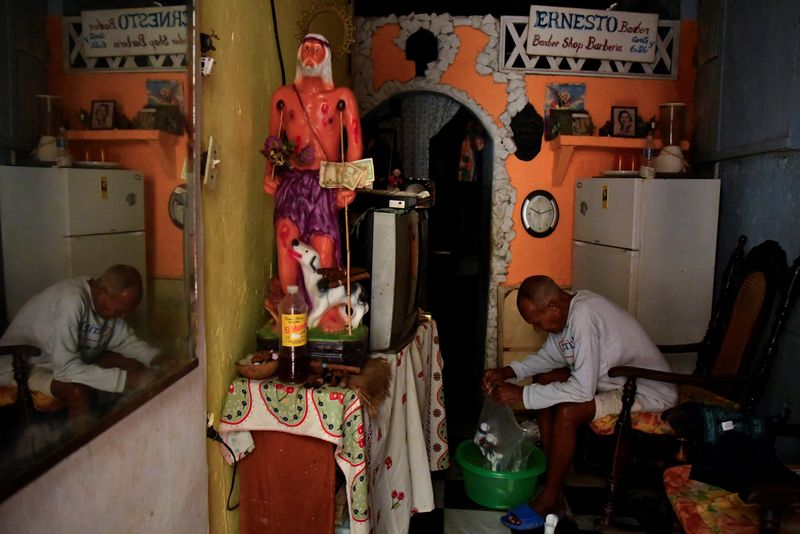
Following Hurricane Ian in September 2022, Cuba’s grid collapsed, leaving the entire country without power for several days.
Authorities eventually re-established service, but not before protests broke out in various cities, including Havana.
This post is originally published on INVESTING.

